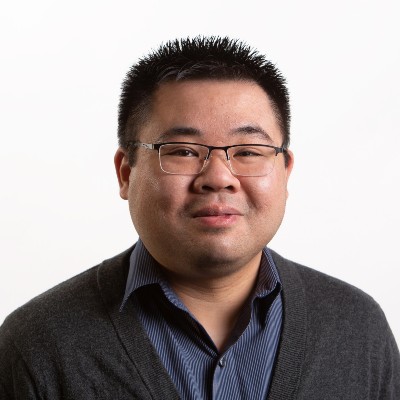This in an invite-only workshop. Please do not forward.
Date: April 26, 2023 from 9:45-17:30 BST
Location: 198 Science Park, Cambridge, CB4 0AB, United Kingdom
As Moore’s Law is reaching its limits, the potential benefits of large-scale artificial intelligence and optimization workloads to modern society could be undermined by their sustainability – economic and environmental – when using traditional computing technologies and architectures. This has sparked a growing interest in non-traditional compute technologies such as analog and optical computing.
The purpose of this workshop is to gather experts in analog and optical hardware development and practitioners and researchers from various industries who are pioneering the use of AI and optimization workloads. The workshop aims to facilitate a dialogue between technology and application experts about the role of non-traditional computing hardware in industry, and by exchanging experiences, we hope to bridge the gap between technology trends and practical applications in the post-CMOS era.
Please RSVP by March 24 to secure your attendance.
If you have questions or would like to recommend another colleague to attend, please contact Emily Maryatt at Maryattemily@microsoft.com for approval.
Format
We encourage all participants to join us in-person in Cambridge, UK to capitalize on the open dialog, breakout sessions, and social activities we are planning. We aim to be as inclusive as possible and are offering virtual options for participants who may prefer to join the workshop remotely. You can find which virtual sessions will be available below. A link to the virtual session will be provided via email after registration.
Agenda
For all in-person attendees, breakfast and lunch will be provided at the lab. We also invite you to join us for dinner following the workshop from 18:30-21:00 BST.
We will provide a shuttle service to and from dinner, leaving from 198 Science Park at 18:15 BST and leaving the restaurant at 21:00 BST. The dinner will be hosted at the River Bar Steakhouse and Grill.
| Time | Speaker | Presentation Title | Virtual attendance available |
|---|---|---|---|
| 9:00 AM | Breakfast & coffee | Breakfast served in Ruby | |
| 9:45 AM – 10:00 AM (15 mins) | Hitesh Ballani (MSR) & Natalia Berloff (Cambridge) | Welcome Introduction | Yes |
| 10:00 AM – 10:30 AM (30 mins) | Grace Brennan and Kirill Kalinin (MSR) | An analog iterative machine for compute at the speed of light | Yes |
| 10:30 AM -10:55 AM (25 mins) | Daniel Brunner (CNRS) | Towards scalable and autonomous Photonic Neural Networks | Yes |
| 10:55 AM -11:20 AM (25 mins) | Thomas Van Vaerenbergh (HP Labs) | Analog computing: the need for algorithm-hardware co-design | Yes |
| 11:25 AM – 11:40 AM | Break | 2nd floor kitchen hub | |
| 11:40 AM – 12:05 AM (25 mins) | Edwin Ng (NTT Research) | Signal-to-noise requirements in optical Ising machines based on measurement feedback | Yes |
| 12:05 PM – 12:30 PM (25 mins) | Harish Bhaskaran (Oxford) | Integrated photonic and optoelectronic computing concepts | Yes |
| 12:30 PM – 12:55 PM (25 mins) | Stella Harrison (Southampton) | Analogue Computing with the “Polariton Simulator” | Yes |
| 1:00 PM | Lunch | Ground floor kitchen | |
| 2:00 PM – 2:15 PM (15 mins) | Alexander Lvovsky (Oxford) | Training an optical neural network by backpropagation | Yes |
| 2:15 PM – 2:40 PM (25 mins) | Abhishek Singh (Princeton) | Ising Optimization for wireless communication | Yes |
| 2:40 PM – 03:05 PM (25 mins) | Oleksiy (Alexei) Kondratyev (ADIA) | Analog Quantum Computing | Yes |
| 3:05 PM – 3:20 PM | Coffee break | 2nd floor kitchen hub | |
| 3:20 PM – 4:30 PM (70 mins) | Location Group 1: CSP/2.2048 Emerald Group 2: CSP/1.2028 Topaz Group 3: CSP/2.1038 Jade | Breakout themes Breakout 1: How can we close the gap between real-world optimization and analog optical technologies? Breakout 2: Can analog optical technologies help deep learning? Breakout 3: What are the common abstractions for analog optical compute technologies? | No |
| 4:30 PM | All | Report Back (10 mins each) | No |
| 5:00 PM | Natalia Berloff | Workshop closing | No |
| 5:15 PM | AIM Lab, Silica Write Lab, Silica Robotics | MSRC Lab Tours (opens in new tab) | No |
| 6:15 PM | Transport to dinner | No | |
| 6:30 PM | Dinner – Riverbar Steakhouse and Grill | No | |
| 9:00 PM | Close of event | No |
Speakers
Organizing committee
Microsoft’s Event Code of Conduct
Microsoft’s mission is to empower every person and every organization on the planet to achieve more. This includes events Microsoft hosts and participates in, where we seek to create a respectful, friendly, and inclusive experience for all participants. As such, we do not tolerate harassing or disrespectful behavior, messages, images, or interactions by any event participant, in any form, at any aspect of the program including business and social activities, regardless of location.
We do not tolerate any behavior that is degrading to any gender, race, sexual orientation or disability, or any behavior that would violate Microsoft’s Anti-Harassment and Anti-Discrimination Policy, Equal Employment Opportunity Policy, or Standards of Business Conduct. In short, the entire experience at the venue must meet our culture standards. We encourage everyone to assist in creating a welcoming and safe environment. Please report (opens in new tab) any concerns, harassing behavior, or suspicious or disruptive activity to venue staff, the event host or owner, or event staff. Microsoft reserves the right to refuse admittance to or remove any person from company-sponsored events at any time in its sole discretion.













